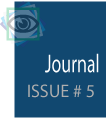International Journal of Small Economies
an International peer-reviewed academic journal on public policy in small economies and nations, island nations and developing countries
Search
Categories
National Academy of Legal Studies and Research University, University of Colombo / University of London
aishath.shafina@gmail.com
Vol. 05, No. 01, Year 2017, Pages 1-16, Accepted January 2017.
ABSTRACT
The current low enrolment rate in higher education of Maldives originates from inefficiencies in organization and distribution of educational resources. The sources collected for the analysis of this study reflects the entire country situation in regard to higher education system and gives evidence that both monetary and non-monetary barriers result in a corresponding shift in balance of power that has worked to the advantage of system over the people. The study has been conducted to assess the factors that hinder access to higher education in the Maldives. Through survey and content analysis technique, the interrelationship between cultural, social and linguistic advantages was assessed in relation to financial advantages of respondents who had access to higher education. The study concluded that non-monetary factors had a strong correlation with access to higher education in relation to monetary factors. More importantly, occupational status of parents, attitude of respondents, income/expenditure of families and cultural capital were proved to be the most influential factors in determining access to higher education.
Key words: Monetary barriers, Non-monetary barriers, Access, Higher Education, Inequality, Cultural Capital, Social Capital, Linguistic Capital
Download the paper (PDF):
Inequalities in access to higher education in the Maldives
AISHATH SHAFINA
Vol. 05, No. 01, Year 2017, Pages 1-16, Accepted January 2017.
Trackbacks
There are no trackbacks on this entry.


Comments
There are no comments on this entry.